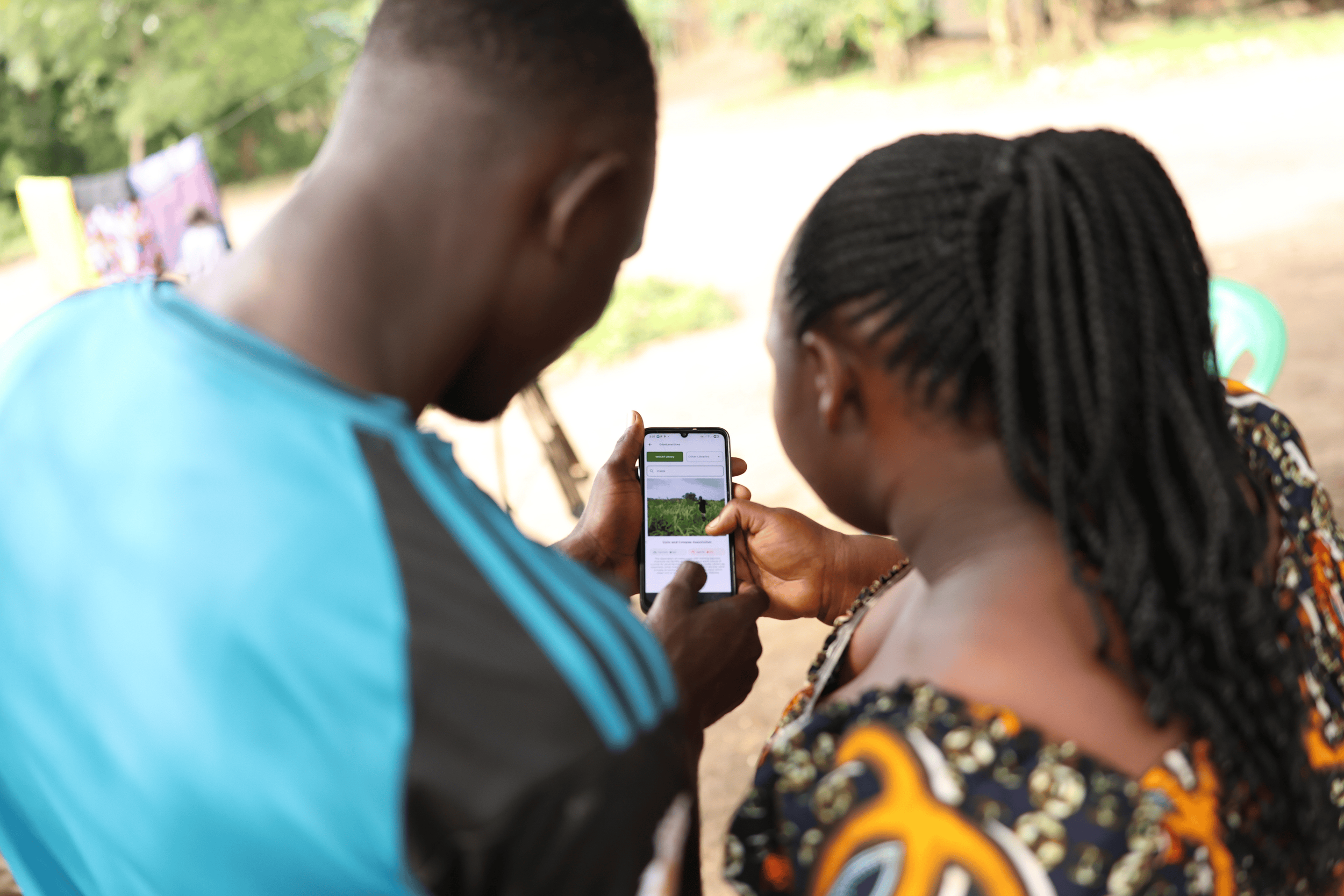How Community-Based Agents Are Helping Farmers Turn Knowledge into Practice
Two people share a smart phone to utilize the farmbetter app.
11/12/2025
In Butaleja, eastern Uganda, Hissa Saniya walks through a patchwork of green fields that were once tired and unproductive. As a community-based agent (CBA) working with the AgriPath Project, she supports farmers across four villages, ensuring that agricultural knowledge reaches everyone – even those without smartphones.Hissa uses a hybrid model of digital extension: she trains lead farmers using the farmbetter app, who then mentor others within their communities. It’s a ripple effect of learning that blends technology with trusted, local relationships.
“Most farmers here relied on copying neighbors without understanding the science behind the practices,” Hissa explains. “With AgriPath, their minds have opened up. They now know why certain practices work-and their yields reflect that change.”
Her experience reflects a wider shift in how smallholder farmers are accessing, understanding, and applying knowledge in the digital age. Smallholder farmers produce nearly two-thirds of the world’s food, yet many still face barriers that limit their productivity – from poor access to agricultural advice to the growing impacts of climate change. The decline in public extension services has made these challenges even more pressing.
Digital advisory services (DAS) are helping bridge this gap by providing timely, localized, and inclusive agricultural information. But access and adoption remain uneven in much of the Global South, constrained by issues such as low smartphone ownership, costly data, limited connectivity, and low digital literacy – especially among women.
That’s where CBAs come in. They are the human link that connects digital innovation with real world farming realities. AgriPath is an action-research and innovation project implemented by a consortium of researchers from the Centre for Development and Environment (CDE) at the University of Bern, the University of Lausanne (UNIL), the International Centre of Insect Physiology and Ecology (icipe), and Kathmandu University alongside implementation partners Grameen Foundation USA, Grameen Foundation for Social Impact (GFSI) in India, and DAS provider, farmbetter Ltd.
Spanning five years (2021–2026), the project is being hosted in Uganda by implementation partner Kilimo Trust in Uganda in partnership with icipe, Grameen Foundation and farmbetter. It is funded by the Swiss Agency for Development and Cooperation (SDC) and the German Corporation for International Cooperation (GIZ). The project evaluates different models of delivering DAS to smallholder farmers. Its core hypothesis posits that smallholder farmers gain more tangible benefits from DAS when they have direct access to rural extension agents who can provide tailored support.
AgriPath’s action-research approach compares three models of delivering digital agricultural advice:
Agent-Facilitated Model: CBAs use digital tools to enhance personal, in-depth farmer support.
Self-Service Model: Farmers access the farmbetter app directly for guidance on sustainable practices.
Hybrid Model: Agents like Hissa guide farmers in using digital tools while continuing in-person training for those without smartphones.
The goal is to find what truly works for smallholder farmers – combining digital efficiency with human empathy.
Even as technology evolves, one thing remains clear: CBAs will continue to be the cornerstone of agricultural transformation. Their proximity, trust, and contextual understanding ensure that digital agriculture remains both human and inclusive.
The story of Hissa Saniya – and thousands of agents like her – shows that bridging the digital divide isn’t just about technology. It’s about people.

